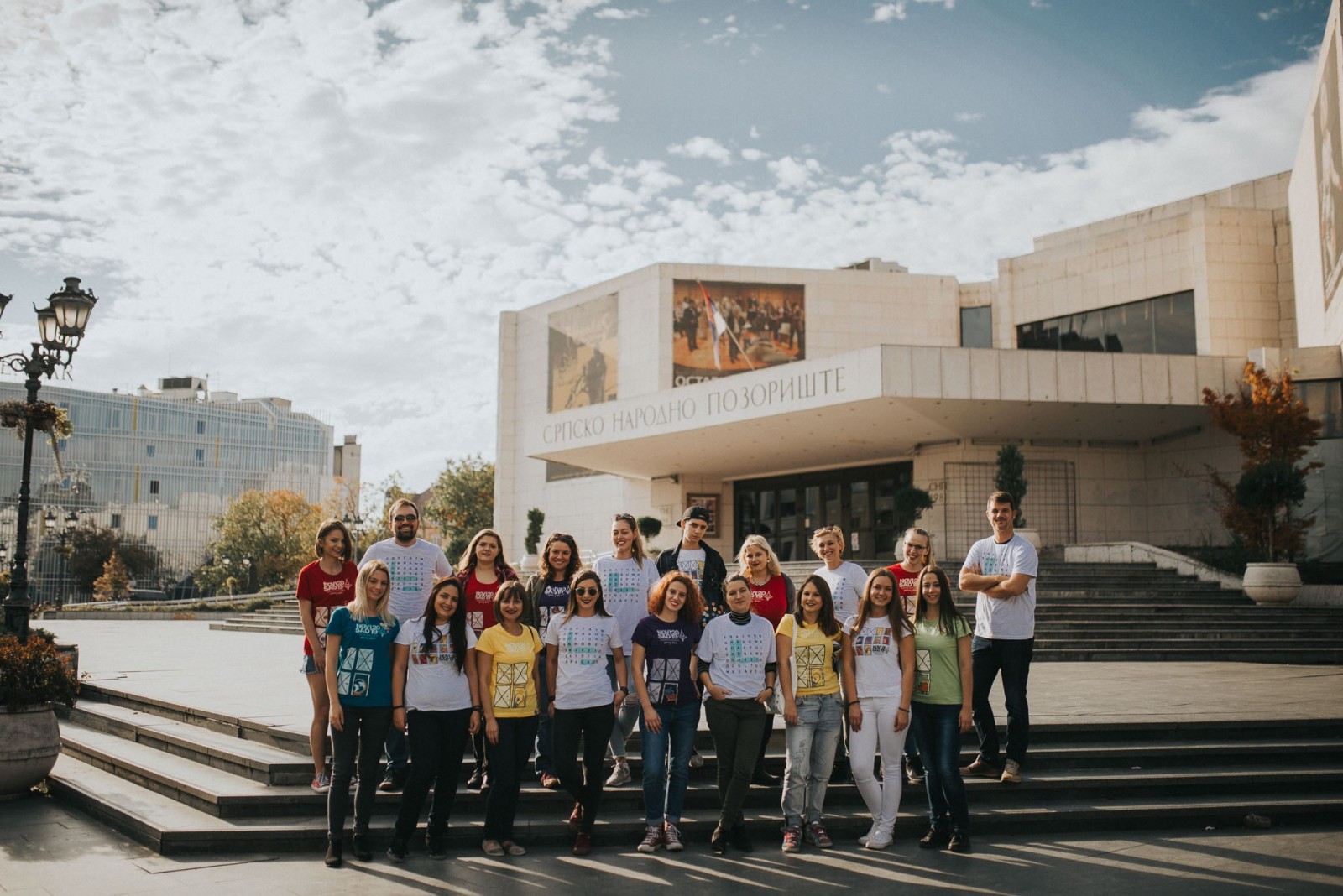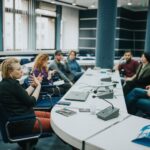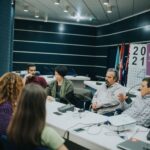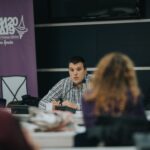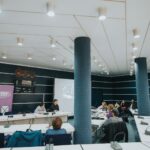One of the first steps towards creation of the systemic model of the Novi Sad Volunteer Service NSVS – the project that will enable implementation of high-quality, sustainable and organised work with volunteers – is being realised through five round tables in Novi Sad.
The main goal of these activities is to present the model of the service and collect suggestions from volunteers and organisers – institutions and associations that work in various segments. ‘The idea was to hear what volunteer organisers, as well as volunteers, think about the volunteer service project, what are their experiences, what would they like to add, what to exclude. The special focus was put on setting standards for high-quality work of the LVS (Local Volunteers Service). We wanted to make the idea more concrete by limiting the areas of volunteer work to five sectors: young people, culture, healthcare, sports and environmental protection’, said Vojislav Prkosovački, coordinator of the Novi Sad Volunteer Service.
Having in mind the importance of volunteer work and future legal frame in our country, the participants stressed the biggest problems they face: inadequate work with volunteers, random engagement of volunteers, lack of precisely defined volunteer positions and programmes, lack of adequate support for volunteer work, discrepancy between wishes and interests of volunteers and available activities.
Mr Prkosovački stresses that there is no institutional framework: ‘More precisely, there is no framework within which volunteer work can develop in a way how we see it, and how it is seen by these two capitals, through the process of the NSVS project (Novi Sad Volunteer Service). This means that there is no institution in the city or province, individual, council or board that deals only with volunteer work, which is definitely needed’.
Volunteer work, in an organised sense, includes volunteer management, human, financial, material and technical capacities, training, implementation of projects through mini-grants, which can be achieved only through platform such as Novi Sad Volunteer Service. Mr Prkosovački explained that this does not mean that the NSVS offers ‘fund of the available volunteers’: ‘The NSVS will not be the service that you can call and ask for 10 volunteers for a festival or sports event. This platform offers structured mechanism where, on one hand, volunteers that we educate can meet, and in accordance with their personal affinities we send them to an organisation that has an open volunteer position. On the other hand, we have organisations and institutions that will timely inform us what kind of volunteer position they have and what kind of volunteer they want, and create the approach with the help of the NSVS. In this way, we approach methodically and we neutralise the possibility of the abuse of volunteers’.
The next step within the implementation of project activities is the conference that will take place on 8 December, commemorating the Volunteer Day (that is celebrated on 5 December). The conference will present the conclusions from the round tables and the most important information that we obtained from the participants, as well as the guidelines on volunteer management. We will invite representatives of the OPENS and ‘Novi Sad 2021’ Foundation, local volunteer services and offices for young people to present their experiences.
More than 50 organisations and institutions participated in the first phase of the project, as well as more than 100 individuals that are somehow included in the volunteer work. What is interesting is that, instead of discussing problems and challenges, civil sector jointly worked on creating mechanisms to improve volunteer work in the local environment. The ‘Novi Sad Volunteer Service’ project is jointly implemented by the ‘OPENS 2019’ youth association of organisations and ‘Novi Sad 2021 – European Capital of Culture’ Foundation.
